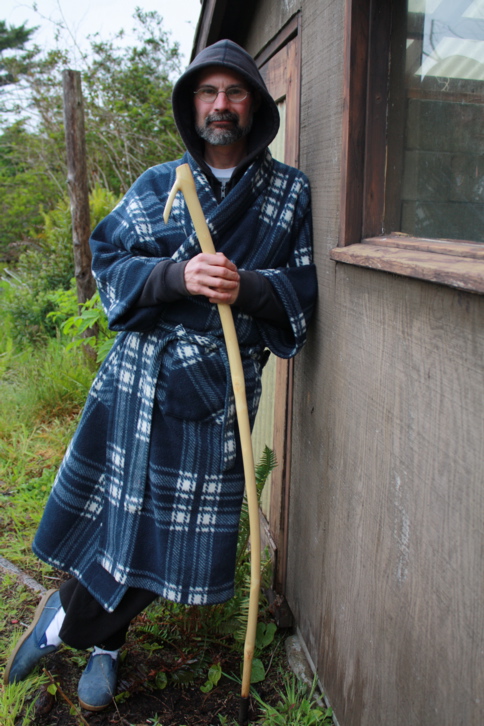
"Dying is easy. Practice is hard."
(My monastic riff on a hallowed show biz pun.)
(Photo of Chàn ancestor Hanshan Deqing's mummy courtesy of Wikimedia Commons and a generous photographer.)


1. Their conduct becomes demonstrably unenlightened.And that second one is antinomianism. You see, it's really very simple: treating others like doormats is the soul of bodhisattva practice. It's just what arhats do, and if you were one, you'd get that
2. They insist this unenlightened conduct is in fact the height of enlightenment; it's just that the sangha are too pedestrian to grasp their higher wisdom.


 So I've been at it again – diving into the Ancestors and the movement that produced them. And once again I've come up with a gem: Second Chàn Patriarch Dazu Huike, known in Japan as Taiso Eka.
So I've been at it again – diving into the Ancestors and the movement that produced them. And once again I've come up with a gem: Second Chàn Patriarch Dazu Huike, known in Japan as Taiso Eka.
In the movie I Heart Huckabees, an "existential detective" asks her new client, "Have you ever transcended space and time?" The client, bewildered, answers, "Yes. No. Uh, time, not space. No, I don't know what you're talking about." From a Zen perspective, all his answers are good, none of them are true, and the last one is likely the best."

 According to Wikipedia's Chàn article, Zen's progenitors identified not one but two paths, or "entrances", to enlightenment. The first is via teaching, an intellectual process in which one reasons one's way to freedom. The second is practice, a Zen synonym for meditation and supporting effort.
According to Wikipedia's Chàn article, Zen's progenitors identified not one but two paths, or "entrances", to enlightenment. The first is via teaching, an intellectual process in which one reasons one's way to freedom. The second is practice, a Zen synonym for meditation and supporting effort. A Buddhist bow to the lighted candles of my Jewish brothers and sisters worldwide.
A Buddhist bow to the lighted candles of my Jewish brothers and sisters worldwide.

He entered Hwangnyongsa Temple as a monk, studied Buddhism, Confucianism, and Taoism, and diligently practiced meditation.Yeeeeah…. that's Zen, son. So why don't they just say Zen?
In 661 [Wonhyo] and a close friend […] were traveling to China [when] the pair were caught in a heavy downpour and forced to take shelter in what they believed to be an earthen sanctuary. During the night Wonhyo was overcome with thirst, and reaching out grasped what he perceived to be a gourd, and drinking from it was refreshed with a draught of cool, refreshing water. Upon waking the next morning, however, the companions discovered much to their amazement that their shelter was in fact an ancient tomb littered with human skulls, and the vessel from which Wonhyo had drunk was a human skull full of brackish water.That-there's a straight-up shot of Korean Zen. It has something – ineffable, powerful – that other Zens lack.
Upon seeing this, Wonhyo vomited.
Startled by the experience of believing that a gruesome liquid was a refreshing treat, Wonhyo was astonished at the power of the human mind to transform reality.
 "Coming empty-handed, going empty-handed—that is human. When you are born, where do you come from? When you die, where do you go? Life is like a floating cloud which appears. Death is like a floating cloud which disappears. The floating cloud itself originally does not exist. Life and death, coming and going, are also like that. But there is one thing which always remains clear. It is pure and clear, not depending on life and death.
"Coming empty-handed, going empty-handed—that is human. When you are born, where do you come from? When you die, where do you go? Life is like a floating cloud which appears. Death is like a floating cloud which disappears. The floating cloud itself originally does not exist. Life and death, coming and going, are also like that. But there is one thing which always remains clear. It is pure and clear, not depending on life and death.| Pictured: not the Buddha. |
A monk asked Hotei, "What is the meaning of Chán?"
Hotei put down his bag.
"How does one realise Chán?" the monk asked.
Hotei threw his bag on his back and walked on.
 |
| Jolly old Gautama. |
 |
| This blog brought to you by the Loyal Order of Crazy White Boys. |
 |
| Photo taken months ago in front of my meditation hut. I swear I had no idea. |